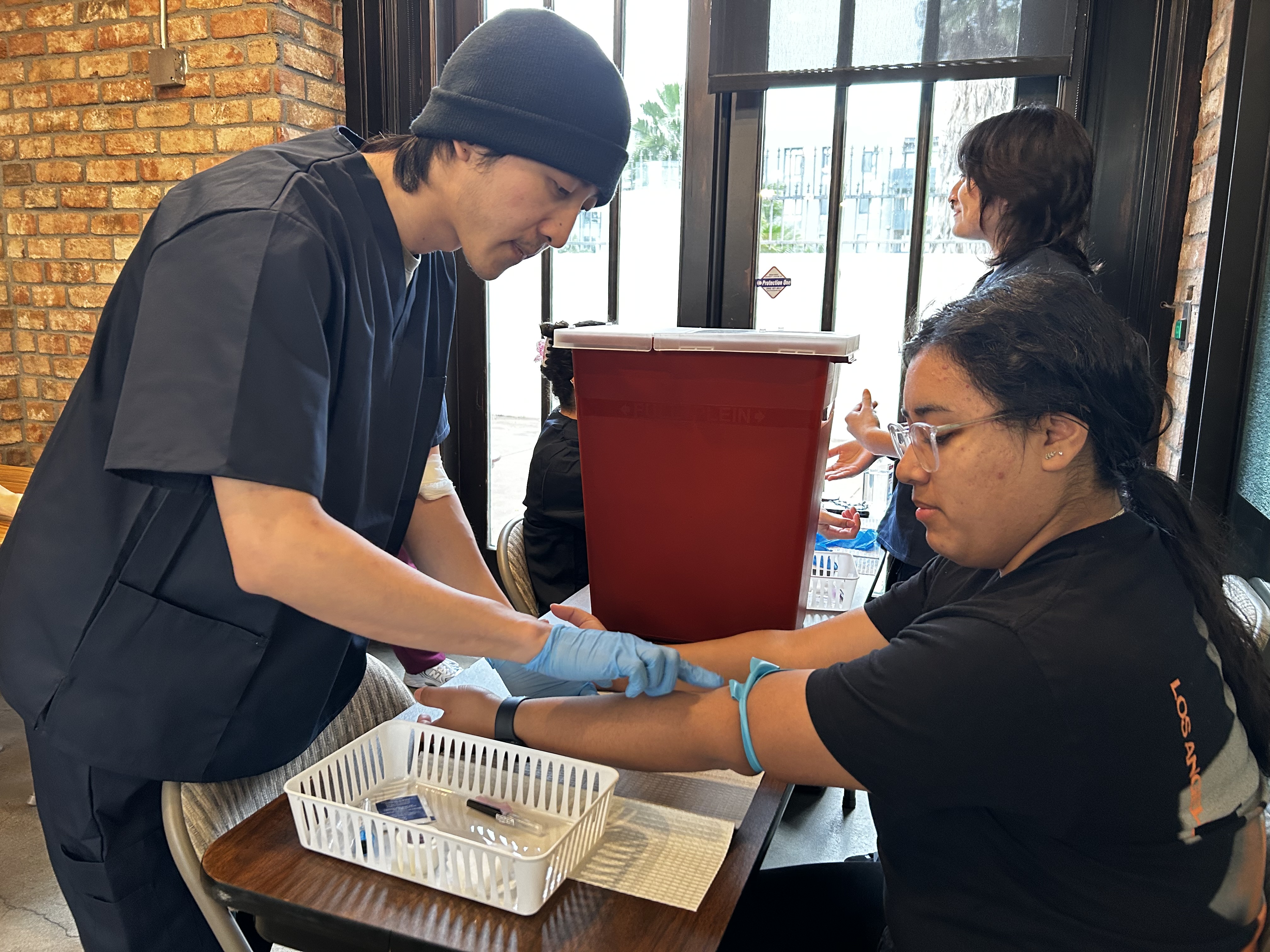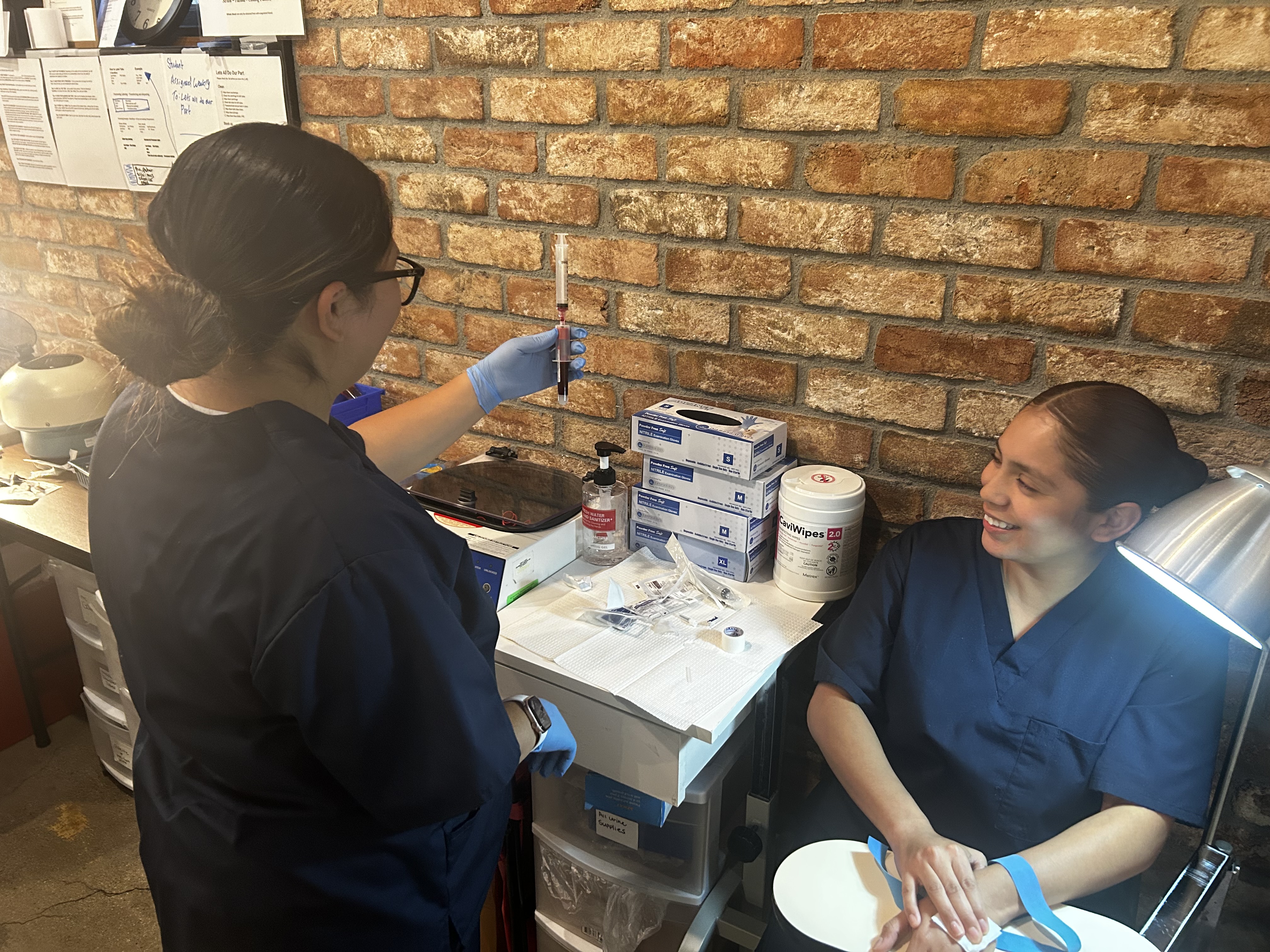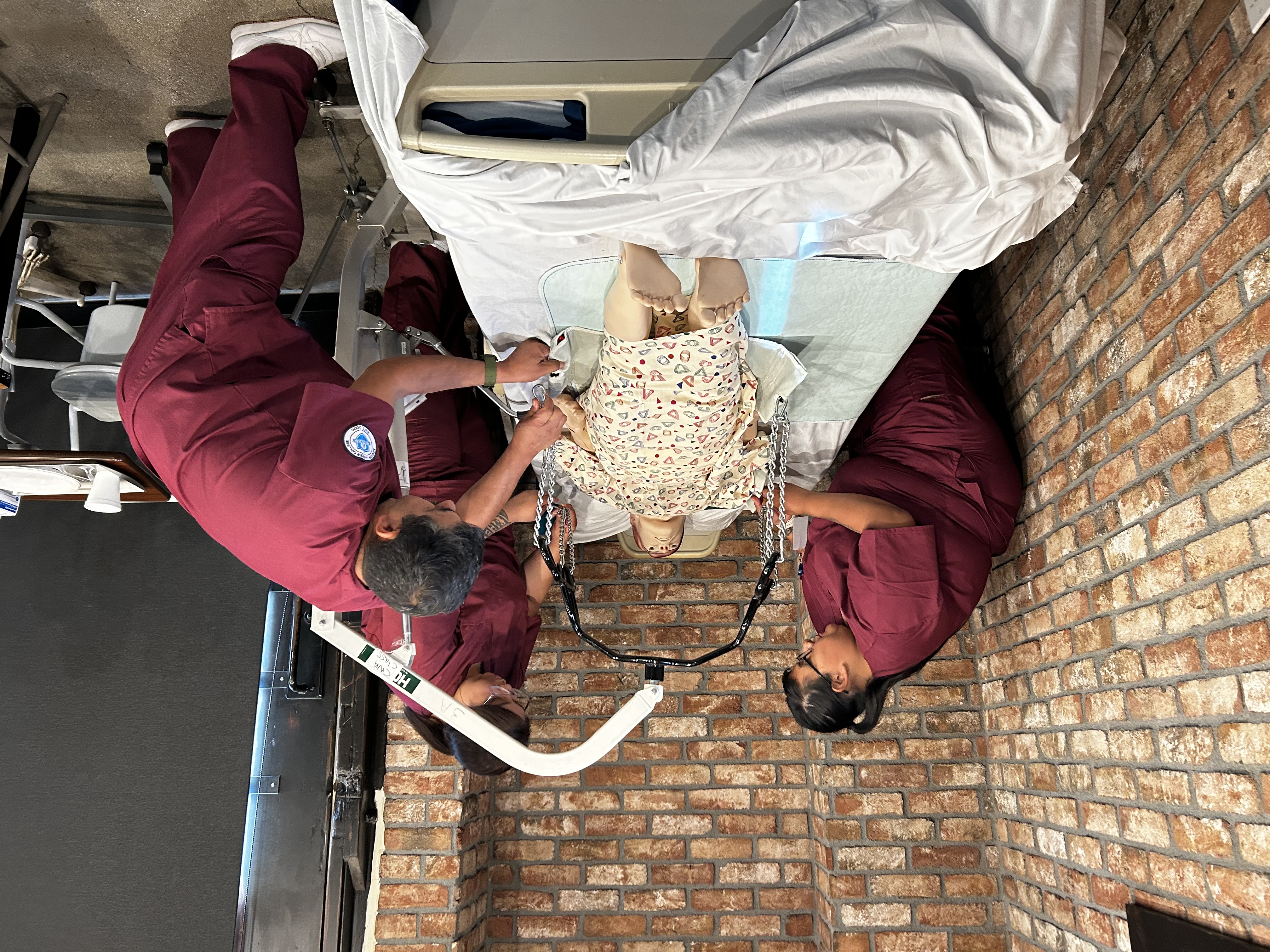Top Skills You’ll Learn at Mission Career College
Real-World Training That Prepares You for the Job
When it comes to building a career in healthcare, skills matter. At Mission Career College, our programs are designed to equip students with the practical experience and technical knowledge they need to stand out in today’s workforce.
Whether you’re training to become a Nursing Assistant, Medical Assistant, or Phlebotomy Technician, you won’t just learn about healthcare—you’ll learn how to do it. Our instructors bring real-world experience into every classroom, and our hands-on training ensures you’re ready to work the moment you graduate.
Here are the top skills you’ll master at Mission Career College—and how they prepare you for success.
1. Hands-On Patient Care
Empathy. Confidence. Precision.
Patient care is the heart of healthcare. Whether you're helping with daily activities or offering emotional support, knowing how to care for patients respectfully and professionally is a must.
At MCC, we teach students to:
- Assist with bathing, feeding, and mobility
- Take vital signs accurately
- Use proper lifting and transfer techniques
- Communicate clearly and compassionately
These foundational skills are especially crucial for Nursing Assistants (NAs), who are on the front lines of patient interaction in hospitals, long-term care, and home health environments.
2. Clinical & Technical Proficiency
Learn the Skills Employers Expect
Employers don’t just want graduates—they want professionals who are ready to contribute from day one. That’s why our programs focus on real-world clinical training.
Depending on your program, you’ll gain proficiency in:
- Taking and charting patient vitals
- Administering EKGs and injections (Medical Assistant)
- Performing venipuncture and capillary blood draws (Phlebotomy)
- Preparing patients for exams
- Setting up medical equipment and workspaces
Each skill is taught using industry-standard tools and procedures, giving you the confidence to transition seamlessly from classroom to clinic.
3. Infection Control & Workplace Safety
Because Lives Depend on It
In healthcare, safety isn't optional—it’s a responsibility. MCC ensures every student is trained in the latest infection control and patient safety protocols, including:
- Hand hygiene and sanitation best practices
- Proper use of personal protective equipment (PPE)
- Environmental disinfection
- Needle safety and biohazard disposal
These habits are second nature for seasoned professionals—and we make sure you learn them the right way, from the start.
4. Healthcare Communication & Documentation
Speak the Language of Healthcare
Every healthcare setting relies on accurate, effective communication—both verbal and written. At MCC, you’ll build skills in:
- Medical terminology and abbreviations
- HIPAA-compliant communication
- Patient charting and documentation
- Professionalism in team settings
Whether you're answering phones, speaking with patients, or collaborating with nurses and doctors, you’ll be trained to communicate clearly and respectfully.
5. Professionalism & Soft Skills
Because Technical Skills Aren’t Enough
What separates a good healthcare worker from a great one? Often, it’s the soft skills: professionalism, reliability, and compassion.
Mission Career College emphasizes workplace readiness by helping students develop:
- Time management and punctuality
- Conflict resolution and teamwork
- Emotional intelligence and empathy
- Cultural sensitivity and patient advocacy
These are the skills that leave a lasting impression on employers—and patients.
6. Certification Readiness
Get Trained. Get Certified. Get Hired.
Many entry-level healthcare jobs require certification. MCC builds exam preparation directly into every program to ensure you're ready when it counts.
You’ll be prepped for:
- State Nursing Assistant Certification (for NA students)
- NCCT/CCMA Certification (for Medical Assistants)
- California CPT1 Certification (for Phlebotomy Technicians)
- CPR and First Aid Certification (as applicable)
Our goal is to make sure certification isn’t a hurdle—it’s your launchpad.
7. Program-Specific Skillsets
Tailored Training for Specific Roles
Every program at Mission Career College is designed with one goal: job-readiness. That means each course is tightly focused on the specific skills you’ll need in your chosen career path.
Nursing Assistant (NA)
- ADL (Activities of Daily Living) support
- Vital signs and patient monitoring
- Ambulation and mobility
- Nutrition and feeding assistance
Medical Assistant
- Front office operations and EHR systems
- Clinical procedures like injections and EKGs
- Patient intake and exam prep
- Billing, coding, and scheduling
Phlebotomy Technician
- Venipuncture and dermal puncture techniques
- Lab safety and specimen handling
- Quality control and reporting
- Chain-of-custody and patient ID procedures
Each program is structured for maximum practical application—not just theory.
8. Career Preparation & Job Search Support
From Classroom to Career
We don’t just teach healthcare. We help you start working in it.
Mission Career College offers job readiness services that include:
- Resume building and mock interviews
- Employer connections and referrals
- Job placement assistance
- Career development workshops
Our partnerships with local clinics, hospitals, and healthcare providers mean that students have access to real opportunities—often before graduation.
9. Flexible Learning That Supports Your Life
You Shouldn’t Have to Choose Between Life and Learning
MCC understands that many of our students are balancing jobs, families, and other commitments. That’s why we offer:
- Flexible morning, evening, and weekend classes
- Short-term program formats (as little as 6–12 weeks)
- In-person training with small class sizes
Our programs are designed for real life, with instructors who work with your schedule—not against it.
10. Confidence That Goes Beyond the Classroom
You’ll Graduate With More Than a Certificate
Healthcare is high-stakes, high-impact work. You need to feel confident in your skills and your ability to make a difference.
That’s why MCC focuses on:
- Building your self-assurance through practice
- Creating a supportive, inclusive learning environment
- Encouraging lifelong learning and continued growth
You’ll leave MCC knowing you're not just qualified—you’re ready.
Why These Skills Matter Now More Than Ever
The healthcare industry is growing—and it’s hungry for skilled, certified professionals who are prepared for today’s fast-paced, patient-centered environment.
According to the U.S. Bureau of Labor Statistics:
- Employment of Nursing Assistants is projected to grow 5% through 2032.
- Medical Assistant jobs are growing at 14%—much faster than average.
- Phlebotomy Technician roles are projected to grow by 8% over the next decade.
These roles don’t require years of school. They require training that works.
Train With Confidence. Graduate With Purpose.
At Mission Career College, we believe in practical education, strong support systems, and clear paths to employment. The skills you learn here aren’t just academic—they’re actionable, employable, and in demand.
If you’re ready to take the next step in your healthcare journey, MCC is ready to walk it with you.
Get Started
Train. Certify. Get hired.
Your future in healthcare starts now.





.jpeg)
